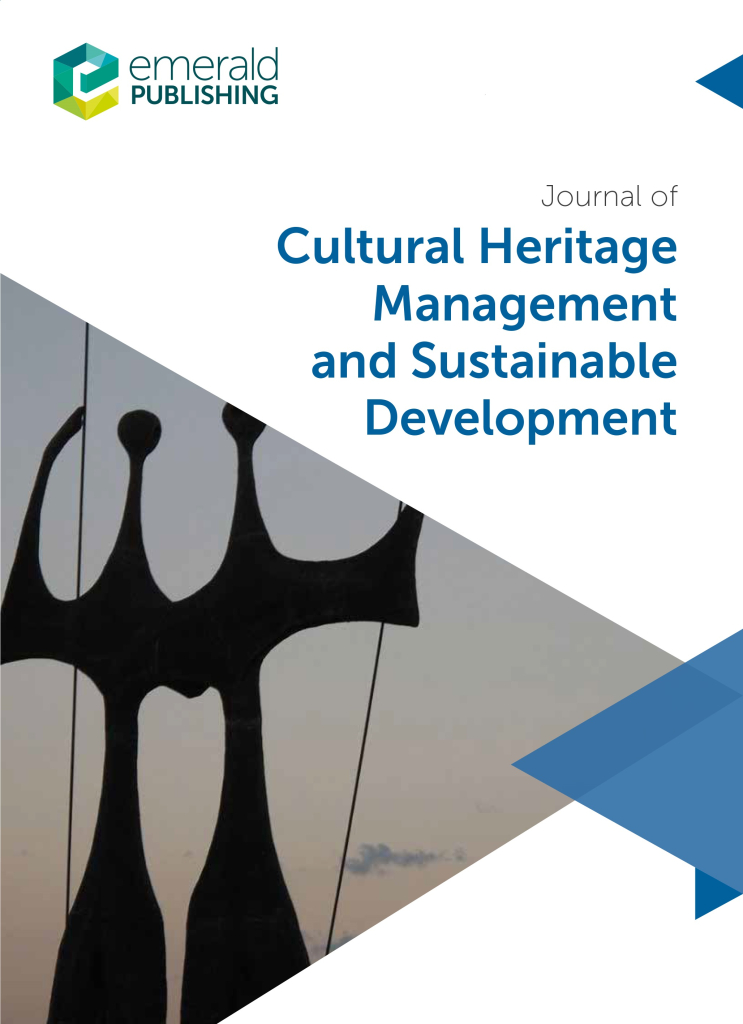 The new Special Issue of the Journal of Cultural Heritage Management and Sustainable Development (JCHMSD) focuses on the results of the Heritage Place Lab initiative of the ICCROM-IUCN World Heritage Leadership (WHL) programme. Taking evidence from processes implemented at various World Heritage places and sites, this journal documents the importance of fostering collaborative practice-oriented heritage research to manage World Heritage effectively.
The new Special Issue of the Journal of Cultural Heritage Management and Sustainable Development (JCHMSD) focuses on the results of the Heritage Place Lab initiative of the ICCROM-IUCN World Heritage Leadership (WHL) programme. Taking evidence from processes implemented at various World Heritage places and sites, this journal documents the importance of fostering collaborative practice-oriented heritage research to manage World Heritage effectively.
Between September 2021 and April 2022, eight World Heritage sites joined the pilot of the Heritage Place Lab (HPL) initiative, which aims to establish impactful, practice-oriented research agendas to support evidence-based decision-making and enhance the effectiveness of heritage management action while offering collaborative space for knowledge exchange and co-production. Recognizing the two-way dilemma – researchers often lack access to information on management processes and managers often lack access to research results – the HPL provides a framework to bridge this gap by bringing together researchers and those involved in managing World Heritage.
Using the framework of the forthcoming Enhancing Our Heritage Toolkit 2.0, the HPL facilitated six online workshops to analyze in depth each World Heritage site and provide tools for collaborative work to identify management issues and corresponding research needs.
The Special Issue of JCHMSD, ‘Towards practice-led research agendas for World Heritage properties,’ delves deeper into the key findings of the HPL through the experiences of the research-practice teams involved in the pilot project. The volume offers an overview of the process of developing research agendas at seven of the eight sites through the eyes of research-practice teams, showcasing challenges and establishing a joint framework benefiting both parties.
The Special Issue includes a total of eight articles: seven by research-practice teams explaining their experience establishing collaborative processes and an article contextualizing the HPL in the framework of the 50th anniversary of the World Heritage Convention, which was celebrated in 2022.
Access the full Special Issue at this link, or visit the single articles below.
- Guest editorial: Towards practice-led research agendas for World Heritage properties (Maya Ishizawa and Eugene Jo)
- La Antigua Guatemala living heritage. Improving governance for sustainable development (Mario Raúl Ramírez de León, Claudia Blanca Verónica Wolley Schwarz, María Elena Molina Soto, Olga Edith Ruiz, María Magdalena Ixquiaptap Tuc, Josué Roberto García Valdez)
- When theory meets praxis – enhancing heritage management through practice-led research at Great Zimbabwe World Heritage property (Thomas Panganayi Thondhlana, Tawanda Mukwende, Lesley Hatipone Machiridza, Tendai Treddah Musindo, Genius Tevera, Nyaradzayi Maduro)
- Research and practice in harmonising nature and culture in Jaipur City, Rajasthan, India (Anuranjan Roy, Madhura Yadav, Shikha Jain, Nitya Khendry, Chandni Chowdhary, Gautam Talukdar)
- A participatory practice-informed research agenda for the historical sanctuary of Machupicchu: first experience in Peru (María Elena Chuspe Zans, Rosario Barrera, Ernesto Escalante, Israel Aragon)
- Exploring cultural values of African wetlands for sustainable conservation: Okavango Delta World Heritage Site, Botswana (Susan Osireditse Keitumetse, Katlego Pleasure Mwale, Gakemotho Satau, Kgosietsile Velempini, Vasco Ompabaletse Baitsiseng, Onalethuso Petruss Buyile Mambo Ntema, Jobe Manga, Stephen Thapelo Mogotsi)
- Developing a collaborative research agenda for Quebrada de Humahuaca, Argentina (Graciela Edith Aguilar, Alfredo Conti, Raquel Elisabet García, Josefina Mallo, Valentina Millón, Andrea Morello, Sebastián Matías Pasin)
- Inclusive management: accommodating site complexity and pluralities in local values in the Rjukan-Notodden Industrial World Heritage Site, Norway (Steffen Fagernes Johannessen, Juliana Strogan, Vicky Katarina Mikalsen, Inger Birkeland, Audhild Kennedy)
- Using keywords to link World Heritage research and practice: observations from the World Heritage Leadership Heritage Place Lab (Kristal Buckley)
About the Heritage Place Lab
Launched in May 2021 and implemented between September 2021 and April 2022, the pilot phase of the Heritage Place Lab acted as a facilitated and structured incubator for the collaborative creation of practice-led research agendas for eight World Heritage properties: Asante Traditional Buildings (Ghana); Antigua Guatemala (Guatemala); Great Zimbabwe National Monument (Zimbabwe); Jaipur City, Rajasthan (India); Historic Sanctuary of Machu Picchu (Peru); Okavango Delta (Botswana); Quebrada de Humahuaca (Argentina); and Rjukan-Notodden Industrial Heritage Site (Norway). The HPL involved 20 institutions, more than 60 heritage professionals and researchers, and 30 resource people from around the world.
Between the end of 2023 and the beginning of 2024, the WHL will launch a new edition of HPL.
